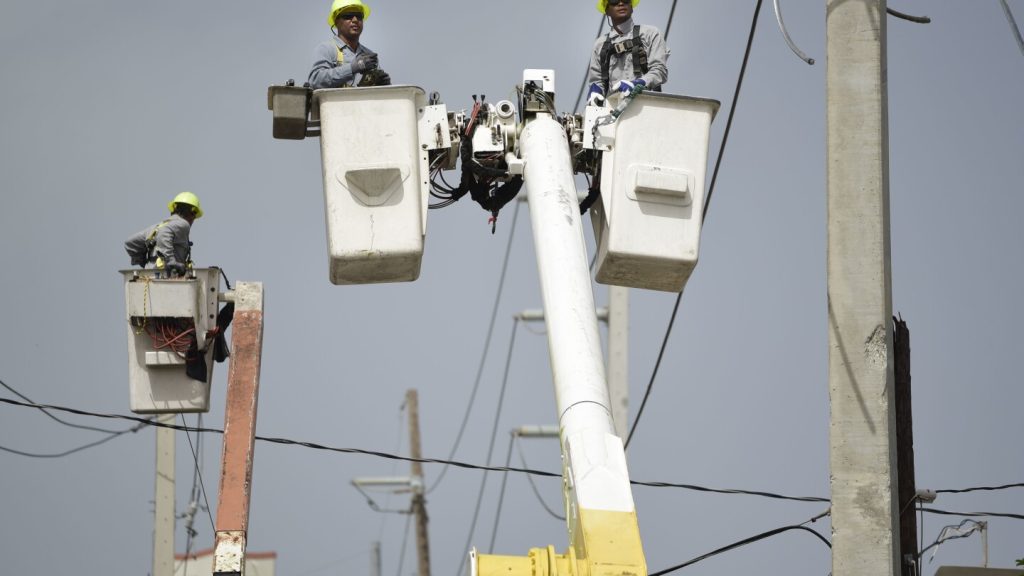The entire island of Puerto Rico has been placed under a heat advisory for the first time by meteorologists, as it struggles with chronic power outages and high temperatures. All 78 municipalities in the U.S. territory were included in the advisory, as well as the U.S. Virgin Islands. This is the first time the heat advisory has been extended beyond Puerto Rico’s coastal areas since the alert system was established six years ago. Heat indexes were expected to reach up to 114 degrees Fahrenheit in most of Puerto Rico’s coastal areas on Tuesday and into Wednesday morning, exacerbated by a dense cloud of Saharan dust from Africa covering the island.
Ernesto Morales, warning coordination meteorologist with the San Juan National Weather Service, emphasized the importance of the heat advisory in helping the public make informed decisions. He mentioned that climate change and warming waters are contributing factors to the oppressive heat being experienced on the island. The advisory is in effect from 10 a.m. to 6 p.m., with the Saharan dust adding to the severity of the heat. These particles are considered a health hazard, especially for individuals with allergies or weakened immune systems.
The Saharan dust, composed of mineral dust from West Africa, is moving across Puerto Rico and the Atlantic, worsening the heat levels. Residents are encouraged to take precautions and stay indoors as much as possible during the peak heat hours. The combination of extreme temperatures and power outages in some areas of Puerto Rico poses a serious risk to residents, particularly vulnerable populations such as the elderly and young children. Authorities are closely monitoring the situation and providing updates to ensure the safety of all residents during this heatwave.
With Puerto Rico facing unprecedented temperatures and a heat advisory covering the entire island, authorities are urging residents to stay hydrated, avoid prolonged exposure to the sun, and seek shelter in air-conditioned spaces. The impact of climate change and warming waters on Puerto Rico’s weather patterns is becoming increasingly evident, leading to more frequent and intense heatwaves. The government is working to address the underlying issues that contribute to the island’s vulnerability to extreme heat events, including improving infrastructure to mitigate the impact of power outages during such conditions.
The heat advisory serves as a reminder of the urgent need to address the impacts of climate change on vulnerable communities like Puerto Rico. As the island continues to grapple with the effects of extreme weather events, it is crucial for authorities to implement measures to protect residents from the dangers of heatwaves and other climate-related disasters. By raising awareness about the risks of high temperatures and providing resources to help individuals cope with extreme heat, Puerto Rico can build resilience and adapt to the changing climate conditions. The issuance of a heat advisory for the entire island underscores the importance of prioritizing climate action and investing in sustainable solutions to combat the challenges posed by rising temperatures and environmental threats.


